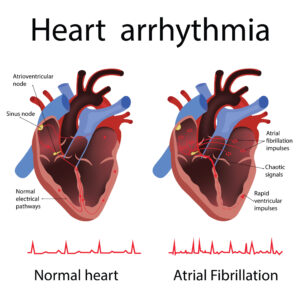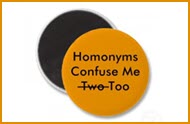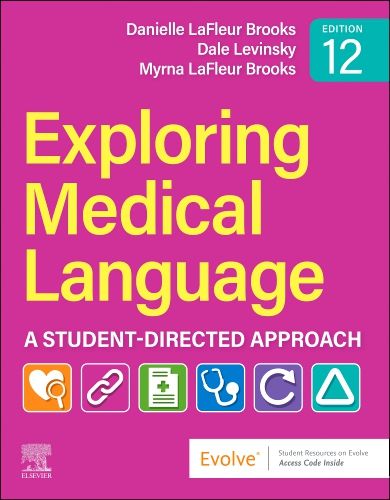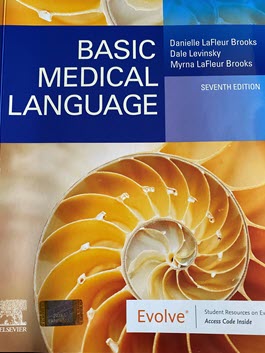 Arrhythmia vs. Dysrhythmia
Arrhythmia vs. Dysrhythmia
There’s no difference in meaning between the words “arrhythmia” (uh-RITH-me-uh) and “dysrhythmia” (duhs·rith·mee·uh) when referring to the heart.
They both refer to an abnormal or irregular heartbeat.
Cardiac arrhythmias (dysrhythmia) occur when the electrical signals that coordinate the heart’s beats don’t work correctly.
The faulty signaling causes the heart to beat too fast (tachycardia), too slow (bradycardia), or irregularly.
History of the Terms
Meaning
Because of their prefixes, arrhythmia and dysrhythmia have different literal meanings.
The prefix a means without, whereas the prefix dys means abnormal. Therefore arrhythmia means without rhythm, and dysrhythmia means abnormal rhythm.
Some argue that dysrhythmia is the accurate term to describe the condition and should be used. Others claim that arrhythmia, although it no longer has a precise meaning, is the correct term because it has been used since the second century A.D.
That’s why you’ll find both used interchangeably today. Which one do you prefer? Which one do you use?
Spelling
The spelling of the terms can be challenging.
Arrhythmia is spelled with two Rs, and dysrhythmia is spelled with one R. The difference perhaps is explained by their origins:
-
- arrhythmia is derived from arrhuthmia, a Greek noun.
- dysrhythmia is derived from rhythmus, a Latin noun.
Both terms have two Hs, as in the word rhythm.
Challenge your spelling of the terms.
1. Which of the following is the correct spelling?
- arhythma
- arryhthmia
- arrhythmia
- arhythmia
2. Which of the following is the correct spelling?
- dysrhytmia
- dysrrhythmia
- dysrhythma
- dysrhythmia
1. You are correct if you chose #3. 2. You are correct if you chose #4.
Read Other Medical Terms Posts >
Click Here to watch a video on arrhythmias.
Myrna LaFleur Brooks is the author of Exploring Medical Language and Basic Medical Language.
Like this post? Share it with your friends!






